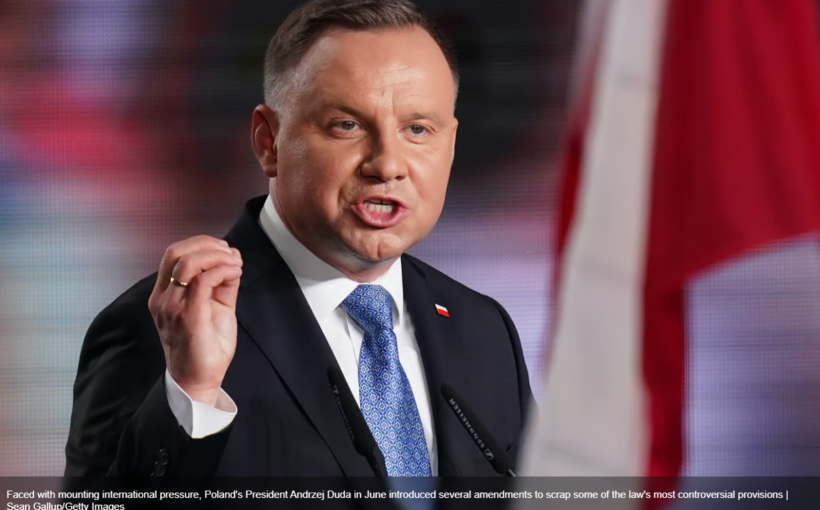The European Commission said it would not extend a ban on Ukrainian grain imports that expires on Friday night, deciding at the last minute to let it lapse despite intense lobbying from eastern EU countries.
In a first reaction, the Polish government threatened to impose its own unilateral ban — which would violate EU single market rules and break solidarity with Kyiv, which Warsaw has supported in its war of defense against Russia.
Imports of Ukrainian grain, including wheat and maize, were blocked from the territory of five eastern EU countries – Poland, Hungary, Slovakia, Romania and Bulgaria — under an agreement reached with Brussels earlier this year. Only transit to other destinations was allowed. The measures were put in place to protect farmers in the five countries from an influx of cheap produce from their war-torn neighbor.
“We currently do not see market distortions in those five member states, therefore we are not extending the ban,” EU Trade Commissioner Valdis Dombrovskis said. “These are exceptional safeguards, not something that should be there for [an] unlimited period.”
Ukraine will now have to take measures to ensure its grain exports do not distort the neighboring markets, the Commission said in a statement. The EU executive, meanwhile, will refrain from imposing restrictions as long as effective measures by Ukraine are in place and fully functioning.
Unity and trust
Ukrainian President Volodymyr Zelenskyy thanked Commission President Ursula von der Leyen for letting the restrictions expire.
“This is an example of Ukraine and the EU working together in true unity and trust. When rules are followed and agreements are kept, Europe always wins,” he posted on the X platform, formerly Twitter.
The decision follows months of intense lobbying by EU Agriculture Commissioner Janusz Wojciechowski and the government of his native Poland to keep the curbs in force until at least the end of the year — and to extend their scope to other products.
The Polish campaign came amid intensifying campaigning ahead of an October 15 general election, where the right-wing government needs to hold on to the rural vote to win an unprecedented third term in power.
The Commission adopted the restrictions in May after Poland and Hungary closed their borders to Ukrainian imports to appease protesting farmers. The two bans violated EU law because only the Commission has jurisdiction over the bloc’s trade.
Both countries have threatened to reimpose unilateral bans if the Commission let the restrictions expire.
“We will extend the ban, despite the lack of approval from the European Commission,” Prime Minister Mateusz Morawiecki said following the Commission’s announcement. “We’ll do it because it’s in the interest of the Polish farmer.”
This story has been updated.


